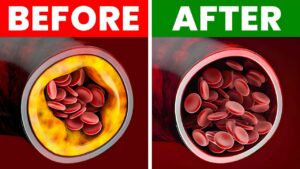In this video, the speaker discusses adaptogens, which are compounds that help the body adapt to stress. Ashwagandha is mentioned as a potent suppressor of cortisol, the stress hormone, and it is recommended to be taken later in the day to keep cortisol levels high. On the other hand, Rhodiola Rosea is an adaptogen that does not suppress cortisol but reduces perceived effort and improves power output and endurance. It is recommended to take 200mg of Rhodiola Rosea before workouts. Additionally, Tongkat Ali and Fadogia Agrestis are mentioned as supplements that enhance libido and energy levels. It is suggested to take them in the recommended dosage without cycling them unless there is a specific reason to do so.

Our Summaries are written by our own AI Infrastructure, to save you time on your Health Journey!
Key Insights:
- Adaptogens, such as ashwagandha and rhodiola rosea, are compounds that help the body adapt to stress.
- Ashwagandha is a potent suppressor of cortisol, the stress hormone. It should be taken late in the day to maintain high cortisol levels.
- Rhodiola rosea reduces perceived effort during workouts and increases power output and endurance. It does not suppress cortisol.
- Rhodiola rosea can improve post-workout recovery and reduce energy dips after intense exercise.
- Ashwagandha can be taken continuously in low doses without any issues. However, for high-stress periods, it should be cycled with breaks every two weeks.
- Tongkat Ali increases free testosterone levels, enhancing libido, energy, and well-being.
- Fedojia agrestis stimulates the release of luteinizing hormone, which increases testosterone output. It can also have subtle estrogen-increasing effects.
- Both Tongkat Ali and Fedojia agrestis can be taken daily without cycling, as they continue to work effectively.
- Monitoring liver enzymes and fertility parameters through regular blood work is advisable when taking these supplements.
- Optimizing vitality and fertility can be achieved through tools, supplements, and proper preparation.
- Individual experiences and starting points may vary, so it’s important to listen to one’s body and adjust accordingly.
Transcript
In this video, the speaker discusses different compounds called adaptogens and their effects on the body. Adaptogens are known for their ability to help the body adapt and reduce cortisol levels. For example, ashwagandha is a potent suppressor of cortisol and can indirectly increase testosterone by suppressing cortisol since they are in the same synthesis pathway.
The speaker suggests taking ashwagandha later in the day, as cortisol levels should be higher during that time. However, it is important not to take high amounts of ashwagandha, especially before exercise, as the goal of exercise is to trigger adaptation through a spike in cortisol.
Rhodiola rosea is another adaptogen that is interesting because it reduces perceived effort and allows for greater power and endurance output. Unlike ashwagandha, it does not suppress cortisol. Taking 200 milligrams of rhodiola rosea prior to a workout can lead to more vigor, longer endurance, and lower perceived effort. Additionally, it seems to help with recovery and prevent a post-exercise dip in energy.
The speaker advises against taking rhodiola rosea all day every day, as its effects may taper off. Similarly, with ashwagandha, taking low doses continuously is fine, but when using it to offset high stress levels, it is recommended to take a break after about two weeks to avoid chronic cortisol suppression.
The speaker then talks about tongkat ali and fedojia agrestis. Tongkat ali is known for freeing up testosterone by decreasing sex hormone binding globulin, which can enhance libido, increase energy, and improve well-being. It is typically taken in doses of 400 milligrams a day before noon or 2 pm to avoid disrupting sleep.
Fedoja agrestis stimulates the release of luteinizing hormone, which can increase testosterone output and potentially estrogen to some extent. However, estrogen is important for libido, cognitive ability, and cardio protection. Fedoja agrestis is commonly taken in doses of 300 to 600 milligrams per day and can be taken with or without food.
The speaker mentions that blood work, including liver enzymes and fertility analysis, should be done periodically to monitor the effects of these supplements. They also discuss sperm analysis and the importance of preparing for parenthood. Some individuals choose to cycle the use of fedoja agrestis, but the speaker states they haven’t felt the need to do so themselves.
In conclusion, different adaptogens have various effects on the body, and individuals should find what works best for them based on their goals and needs. Regular monitoring and individual readiness are essential in optimizing vitality and fertility.





